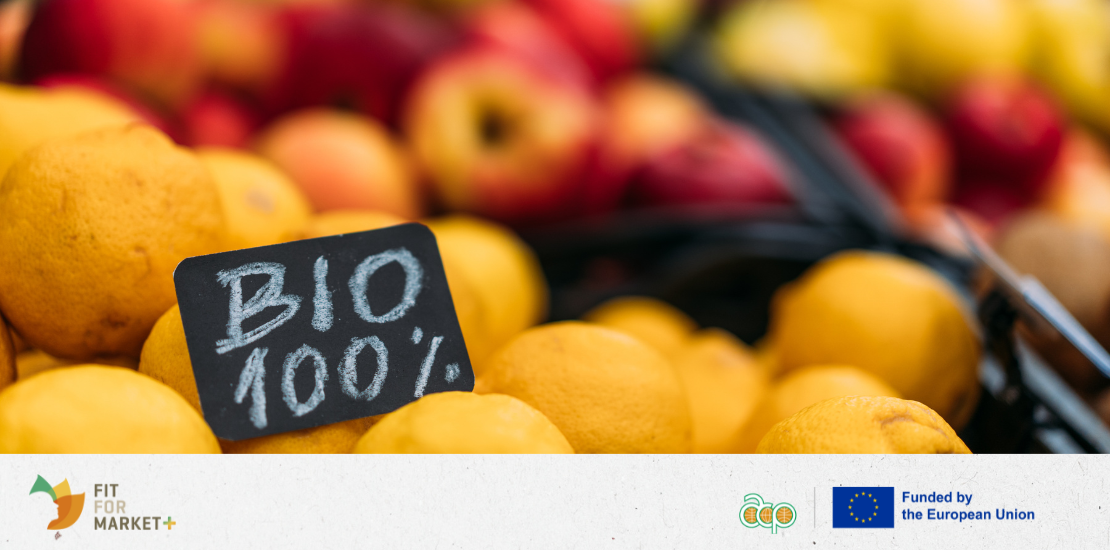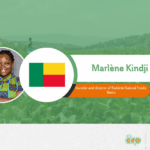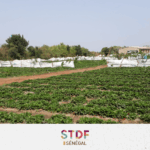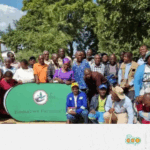- 10/06/2025
- Posted by: Christelle Bento
- Category: News

Requirements regarding pesticide use under the new EU Organic Regulation
The new Organic Regulation (EU) 2018/848 entered into application in January 2021 in the European Union (EU). For Third Countries, the initiation of certificate issuance under the new compliance regime, signifying the conclusion of the equivalence regime started in January this year.
Some of the new requirements, including rules on the use of plant protection products, have implications for third countries. The list of plant protection products permitted for use in organic agriculture under the new EU organic regulation is presented in Annex I of Regulation (EU) 2021/1165. All products and substances listed therein, and the conditions of use, must be aligned with the EU approval under the horizontal Regulation (EC) 1107/2009. This means that use of Plant Protection Products (PPPs) in third countries should be according to EU authorizations and conditions of use.
If substances – or their uses – are not authorized in the EU, an application can be made to authorize their use in third countries through listing under Annex VI of Regulation (EU) 2021/1165. There must be justified reasons to support such a submission, for example to manage a pest not present in the EU. An application dossier must be made using the template provided by the European Commission and must be submitted to the Expert Group for Technical Advice on Organic Production (EGTOP) by a “control authority” or “control body”.
New amendments facilitating use of critical active substances
These new requirements affect in particular areas where crops, pests, and agroecological conditions are very different to those in the EU. COLEAD has been highlighting this issue since 2016 through bilateral meetings with the European Commission, and by responding to public consultations.
In 2023, in collaboration with ECOCERT, COLEAD supported the development and submission of the first dossier for listing under Annex VI. This concerns the use of ethylene for pineapple floral induction, essential for commercial organic pineapple production. EGTOP approved the dossier in August 2023.
In addition, COLEAD worked in a collaborative effort with IBMA, EOCC, OPTA Europe and IFOAM* to secure further Annex VI listings. Some micro-organisms used outside the EU are different from those used within the EU (different species and/or strains). In alignment with EGTOP recommendations, COLEAD and its partners engaged dialogue with the EU Commission to advocate that microorganism and virus are critical tools to operationalise integrated pest management and therefore use should not be restricted to EU approvals. The objective was to ensure that control options are available for priority pests and diseases (e.g. quarantine pests, pests/diseases of significant economic importance) in the first instance, thereby minimising as far as possible the disruption of trade in organic products to the EU from January 2025.
The concerns highlighted by COLEAD and the industry have been taken into account, and we are happy to announce the publication of Commission Implementing Regulation (EU) 2025/973 confirming that :
- Ethylene for pineapple floral induction has been added to Annex VI, allowing for a two-year renewable authorization for use in third countries.
- Microorganisms and viruses are now authorized, provided they comply with relevant third-country legislation.
This is a great example of collaborative efforts between the industry and the EU Commission to apply a pragmatic approach to support trade and access of EU consumers to quality organic products.
Further recommendations to the organic sector
The organic sector must address these requirements, and compile lists of all substances used in organic production for the EU market to check:
- if they are authorised (according to the intended conditions of use) as listed in the Annexes of Regulation (EU) 2021/1165.
- if they are registered in the EU and if they have local authorisation in every exporting country (except where there is a regional harmonised system). If anything is not locally authorised, the process of formal authorisation needs to start as soon as possible.
- if they are using plant extracts that are not listed in Annex I, dossiers for Annex VI should be submitted as soon as possible.
The process of compiling and submitting dossiers for each product/substance is time-consuming. If you are concerned about losing any biocontrol solutions that you are currently using please contact us at: network@colead.link.
* IBMA : International Biocontrol Manufacturers Association, EOCC : European Organic Certifiers Council, OPTA Europe : Organic Processing and Trade Association Europe, IFOAM : International Federation of Organic Agriculture Movements
This activity is supported by the Fit For Market Plus (FFM+) programme, implemented by COLEAD within the Framework of Development Cooperation between the Organisation of African, Caribbean and Pacific States (OACPS) and the European Union. This publication receives financial support from the European Union and the OACPS. The content of this publication is the sole responsibility of COLEAD and can in no way be taken to reflect the views of the European Union or the OACPS.





